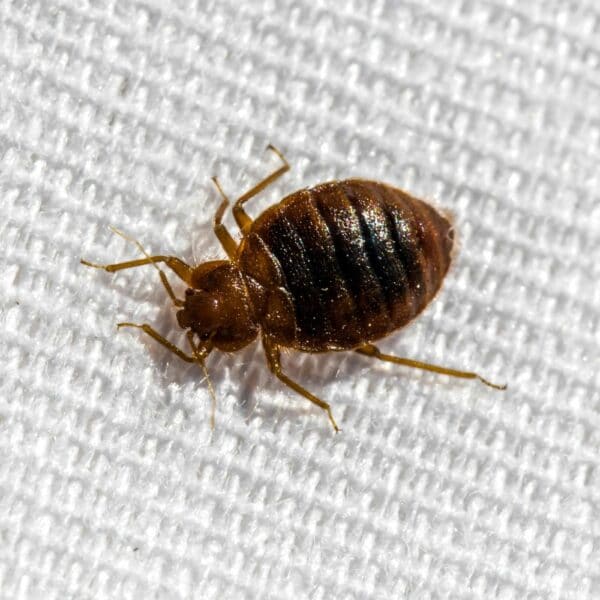Bed Bugs are small, flat parasitic insects that feed on the blood of human hosts. Although bed bugs had largely disappeared during the mid 20th century, a resurgence has taken place over the past decade, including here in the metro Atlanta area.
The exact cause of their increased presence is not known. However, researchers at institutions such as the University of Kentucky and University of California have recognized that new bed bug populations are highly resistant to common pesticides. According to the Centers for Disease Control, this phenomena paired with our upwardly mobile society and decreased local/state pest prevention programs are all contributing factors.
Bites from bed bugs, which are characterized as red welts on the skin, can cause mild to severe allergic reactions as well as secondary skin infections, mental distress and, in rare instances, anaphylactic shock.
Size: 3/16 in.
Color: Reddish-brown
Body Structure: Oval-shaped body, about the size of an apple seed. The body will be reddish and swollen after feeding.
Characteristics: Female bed bugs can lay up to five eggs in a day and as many as 500 eggs in a lifetime. Bed bugs can live up to 300 days at normal room temperatures and with an adequate supply of food.
Habitat/Behavior: Bed bugs nest wherever it is dark and are near to human hosts–they are not limited to beds and mattresses only. Bed bugs can live in furniture, wall voids, carpet, behind electrical outlet wall plates and almost any crack or crevice. When feeding on hosts, bed bugs inject an anesthetic, which prevents the person from feeling the bite, and an anticoagulant, which allows the parasite to feed freely on blood. Infestation often can be detected through several tell-tale signs, including finding molted exoskeletons, rust-colored spots of excrement on mattresses or furnishings and even live bed bugs in the creases of bed linens and under mattresses. Likewise, a sweet musty smell is often associated with bed bug infestation.
Commonly Active: Throughout the year.
Prevention/Treatment: If you suspect bed bug infestation, the best course of action is to alert a pest control professional. Particularly in light of bed bugs’ increased resistance to pesticides, trying to treat an infestation yourself with chemicals may only worsen the problem and also endanger pets or loved ones.

